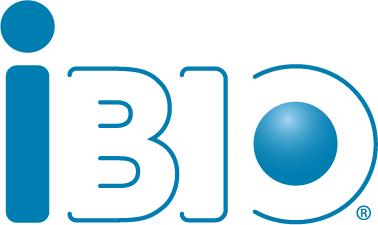iBIO joined 17 other State Biosciences Associations in a letter to Liz Richter, Acting Administrator of the Centers for Medicare & Medicaid Services. A copy of the letter can be found here.
The Council of State Bioscience Associations, represents 46 state bioscience associations across the United States, appreciate the opportunity to provide comment on the CY 2022 Part D Payment Modernization Model RFA, issued on 19 January 2021.
CSBA is a confederation of state-based, non-profit trade associations and advocates for public policies that support responsible development of the bioscience industry. iBIO President & CEO John Conrad serves as a board member of CSBA.
We are committed to ensuring that Patients have access to the treatments they need, when they need them, and we support policies aimed at improving access to groundbreaking therapies and treatments. We also firmly believe that lowering the costs patients pay at the pharmacy counter should be a central tenet of any measure aimed at addressing the cost of prescription treatments.
The Center for Medicare and Medicaid Innovation (CMMI) started the Part D Payment Modernization Model in 2020 to test methods for improving cost managing plan incentives in Part D. The calendar year 2022 Part D Payment Modernization Model RFA substantially narrows beneficiary protections by allowing plan sponsors to treat five of the six “protected classes” (anticonvulsants, immunosuppressants, antidepressants, antipsychotics, and antineoplastics) as plans would treat other classes of treatments starting in 2022. The remaining protected class – antiretrovirals – would have its protection removed beginning in 2023. In addition, CMS would allow participating plan sponsors to cover only one drug per class, instead of the statutorily required two drugs per class. These changes mean that Part D plans participating in the program could offer as few as a single drug per protected class beginning in 2022.
We are gravely concerned that these policies can and will have significant impacts on patient access to new and novel treatments. Further, allowing plans not to cover all drugs in Part D protected classes while applying more aggressive utilization management to these classes will disrupt treatment for many life-threatening diseases, resulting in worse health outcomes and increasing medical costs for the Medicare program. For example, members of the epilepsy community have for years reported experiencing seizures and other harmful effects after switching from one version of an anticonvulsant to another, and a switch from an antiretroviral with a high barrier to resistance to a drug with a lower barrier to resistance can be problematic, especially if the patient does not have access to continued use of one of the approved dual nucleoside/nucleotide reverse transcriptase inhibitors (NRTIs)1.
Medicare’s six protected classes policy is critical to reducing health disparities by ensuring that vulnerable and largely low-income patients have access to critical therapies that treat HIV, cancer, epilepsy, mental health conditions, and other serious illnesses. Congress has periodically reviewed the protected classes and repeatedly reaffirmed the six categories identified by CMS, and CMS has twice in response to significant stakeholder concerns declined to finalize proposed changes that would undermine the protected classes.
Part D plan sponsors already have wide discretion to utilize multiple tools, such as cost sharing and tiered formularies, to encourage beneficiaries to utilize lower-cost alternatives. In fact, Part D generic utilization is high among drug classes within the six protected classes, and generic utilization for drugs within the six protected classes is higher than for other drug classes (92 percent versus 84 percent).2 In addition, by allowing plans to cover as little as one drug per class, the RFA will enable plans to take away treatment choice for many patients with dangerous diseases outside the protected classes. The changes in the RFA unnecessarily and inexplicably propose to erect yet another barrier to necessary and lifesaving treatments for patients at the time they need them the most.
Acting Administrator Richter, our members work tirelessly every day to research and develop treatments and cures – for COVID-19, cancer, hepatitis, diabetes, and hundreds of rare diseases. The patients we serve should be afforded access the treatments prescribed to them. Unfortunately, we believe the CY22 Part D Payment Modernization Model RFA will disrupt the patient-physician relationship and delay needed treatments. We oppose placing plan sponsors above Medicare beneficiaries, and we urge CMS to instead focus efforts on solutions that reduce patient out-of-pocket costs while ensuring access to the most appropriate treatment. We strongly urge the Administration to reverse the new formulary flexibilities and rescind the RFA.

